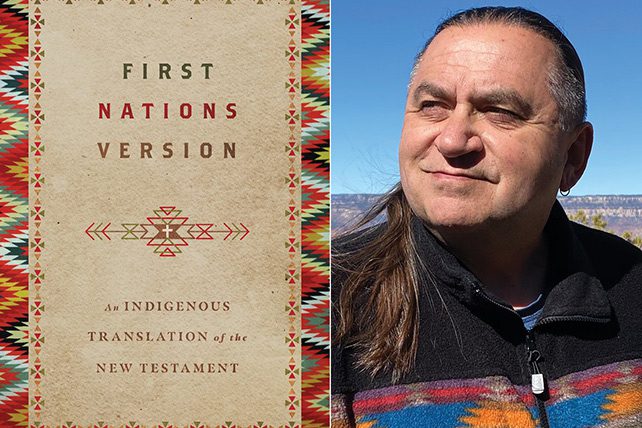A number of ministries already have started using those translations, including Foursquare Native Ministries, Lutheran Indian Ministries, Montana Indian Ministries, Cru Nations and Native InterVarsity, he said.
Native InterVarsity, where Wildman serves as director of spiritual growth and leadership, has distributed earlier editions of the First Nations Version at conferences and used the Indigenous translation in its Bible studies for Native college students for several years.
Megan Murdock Krischke, national director of Native InterVarsity, said students have been more engaged with the translation, hearing the Bible in a way they’re used to stories being told.
“Even though it’s still English, it feels like it’s made by us for us. This is a version of Scripture that is for Native people, and it’s indigenized. You’re not having to kind of sort through the ways other cultures talk about faith and spirituality,” said Krischke, who is Wyandotte and Cherokee.
“It’s one less barrier between Native people and being able to follow Jesus.”
Earlier this month, The Jesus Film Project also released a collection of short animated films called “Retelling the Good Story,” bringing to life the stories of Jesus, or Creator Sets Free, feeding the 5,000 and walking on water from the First Nations Version.
Wildman said the response from Native peoples and ministries to the First Nations Version has exceeded any expectations he had when he first began rewording Bible passages.
He hopes it can help break down barriers between Native and non-Native peoples, too. He pointed out the suspicion and misinformation many white Christians have passed down for generations, believing Native Americans worship the devil and their cultures are evil when they share a belief in a Creator, he said.
“We hope that this will help non-Native people be more interested in our Native people — maybe the history, understanding the need for further reconciliation and things like that,” Wildman said.
“We hope that this will be part of creating a conversation that will help that process.”
This article originally appeared at Religion News Service.

